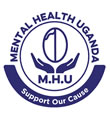Mental health Uganda (MHU) is partnering with Mental Helse Ungdom Norway to implement the Amplifying the Voices of Young People with Mental Health Issues in Uganda. This 5-year project is implemented in 8 districts across 4 regions in Uganda i.e. Northern Region: Gulu and Lira districts; Central Region: Mpigi and Kampala districts; Eastern Region: Soroti and Mbale districts; Western Region: Mbarara and Kanungu districts.
The project seeks to empower people with lived experience to be able to claim their fundamental human rights and increase awareness on mental health issues among the general public.
The project also facilitates change in access to mental health services by providing a toll-free national phone counselling service targeting young persons (15-35 years) with mental health issues and their potential caretakers, providing counselling over the phone. Project staff then assess the extent of the mental health issues and refer callers to appropriate services within their respective regions.
The toll free number 0800 21 21 21 can be accessed Monday to Friday from 8.30am to 5pm apart from public holidays.
From the anonymous data collected from the callers, information around the needs in different districts and regions we are able to influence national and local decision-making processes and policies that influence the lives of young people with mental health issues at local and national levels.
Towards the end of 2022, the project underwent a mid term review. 2,062 clients had been registered (60% male, 40% female). From the review, 82% of the clients reported that they were satisfied with the tele-therapy services. Over 70% of the callers are between 18 and 30 years (the project target group is between 15 and 35 years). 55% of the callers had not received any form of support before calling the helpline, which demonstrates clearly the absence of community based mental health services. On the other hand, 62% of clients interacting with our agents achieve ‘recovery’ through talk-therapy. It is evident therefore that early responses to mental health problems, including talking, before they escalate, can go a long way in averting most mental health complications. This is why at MHU we encourage open conversations on mental health.
